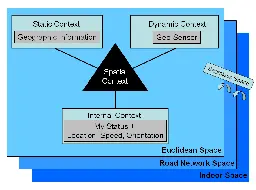Research in cognitive geography
Research in cognitive geography
Displaying information through maps has shaped how humans sense space and direction. Communicating effectively through maps is a challenge for many cartographers. For example, symbols, their color, and their relative size have an important role to play in the interaction between the map and the mapmaker.
The study of Geo-ontology also has interested researchers in this field. Geo-ontology involves the study of the variations among different cultures in how they view and sense landforms, how to communicate spatial knowledge with other cultures while overcoming such barriers, an understanding of the cognitive aspects of spatial relations, and how to represent them in computational models.[7] For example, there might be some geographic meaning that might not be well explained using words. There might be some differences in understanding when spatial information is explained verbally instead of non-verbal form.
c/o doopledi, in room Social Coding FSDL https://matrix.to/#/#socialcoding-foundations:matrix.org
